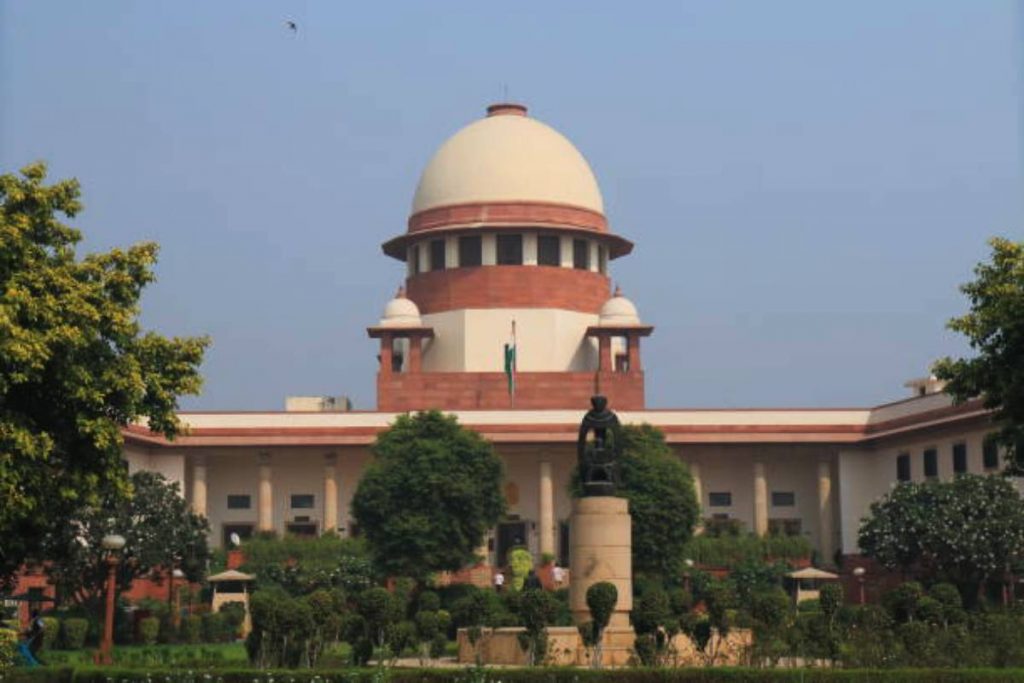The stand taken by the Central government today was the reiteration of the position stated by it in the course of its submissions on 3 May and earlier in its affidavit in response to West Bengal government’s petition.
Parmod Kumar | SNS | New Delhi | May 9, 2024 : he Supreme Court on Wednesday reserved its judgment on the West Bengal government’s plea challenging the Central Bureau of Investigation undertaking investigation into the cases in the state without its statutorily mandated prior consent, as state government asserted that such a situation would be in derogation of the federal nature of Centre-State relationship under Indian constitution.
Reserving the judgment, a Bench of Justice B R Gavai and Justice Sandeep Mehta gave both – the petitioner West Bengal government and the central government time till Friday, 17 May, to file note of their respective submissions not more than 20 to 25 pages each. Giving time till 17 May to file written submissions, the Bench said that they would be writing the judgment during a seven week-long summer vacation of the top court starting from 20 May.
While the West Bengal government asserted that the Central Bureau of Investigation cannot register cases and undertake any investigation in the State without its prior nod, after it has already withdrawn its general consent since 16 November, 2018, the central government reiterated that the central investigating agency was an independent of its control and was not functioning under its control and supervision.
By its 16 November decision, the West Bengal government has withdrawn its general consent permitting the CBI to undertake any investigation in the state.
The Solicitor General, Tushar Mehta appearing for the central government said that its (central government) presence in the CBI was limited to the transfer, posting, territorial jurisdiction – areas it can investigate – and the finances of the agency including emoluments. As far as registration of cases and their investigation was concerned, the agency was an autonomous and independent entity.
On a poser from the Bench as to under which ministry the CBI comes, the Solicitor General Mehta said that it could be the department of personnel & training (DoPT) or the ministry of home affairs. However, the Solicitor General said that the government cannot ask the CBI to register cases.
The stand taken by the Central government today was the reiteration of the position stated by it in the course of its submissions on 3 May and earlier in its affidavit in response to West Bengal government’s petition.
However, an attempt by the Solicitor General Mehta drawing a parallel between the independence enjoyed by the CBI with that of the independence of the judiciary was not accepted by the Court. The bench said any comparison of independence of CBI with that of judiciary is an “incorrect analogy”.
Appearing for the West Bengal government, senior advocate Kapil Sibal told the Bench that after the state government withdrew its general consent to the CBI to probe cases in the state, the central agency could not have undertaken any investigation in the State without prior consent of the state government.
“The West Bengal government had withdrawn the consent on 16 November, 2018. The cases registered by the CBI, which are under the challenge, after the withdrawal of the consent” could not be investigated, Sibal told the Bench pointing out that, “The constitutional question is whether after the withdrawal of the consent, can you (central government) allow your agency to enters my State, without my consent.”
He further argued that when in parliament a question is asked about the CBI, it is the DoPT under the Prime Minister that answers the questions.
Assailing the Centre’s stand that CBI can register cases on its own, Sibal said, “That is the most dangerous proposition that the Centre has advanced before the court, which will be destructive of the federal nature of the Centre-State relationship.”
Sibal cited the instance of “CBI registering a case in a state without its prior nod and the same is challenged and by the time the matter is decided it would take 4 to 5 years and by then the trial in the case would be over.”
The West Bengal government in its suit has challenged the registration of cases by the CBI without its consent. It has referred to the provisions of the Delhi Special Police Establishment Act 1946, stating that the CBI is mandated under the statute to take the State government’s consent before registering cases.

